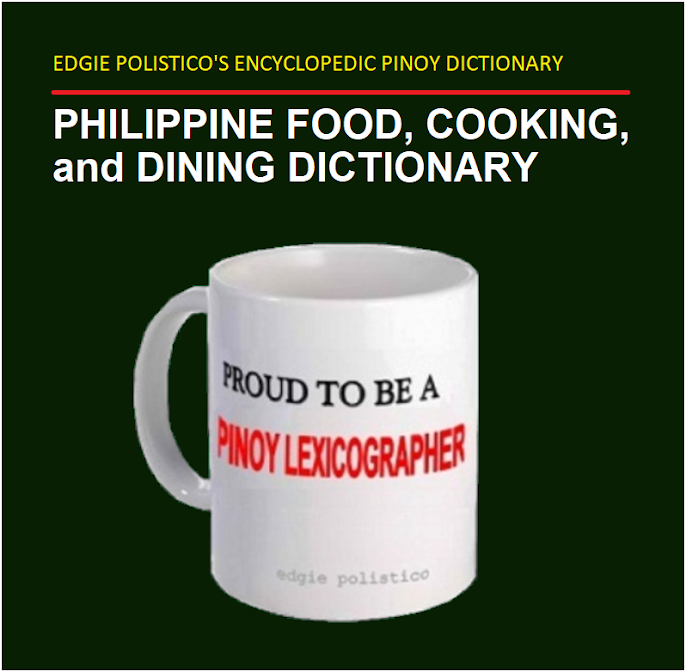also spelled as pakumbo in Batangueño
A variation of bukayo (coconut sweetmeat) can be found in the towns of the southern coastal side of Batangas province. It is served and packed in dried banana bark.
The process of making pacombo starts by scraping the tender meat of young coconut fruit into strands making the tender nut look like thick miki noodles. These strands are then boiled in buco juice (coco water) with sugar and cooked until the nuts turn translucent and the sauce is thick. Pacombo is done when it is almost dry.
A spoonful of pacombo is served by placing it on a rectangular or square cut of dried banana bark. A bunch of these servings is wrapped in a box that is also made of dried banana bark. The rectangular box, a little bigger than the box of family-size toothpaste, is made of tuyong balat ng puno ng saging (the brown or dried banana bark) that same bark called bani in Cebuano. It is not the dried petiole of banana or what is called palapa in Tagalog (or palwa in Cebuano) as mistaken by other food writers and bloggers.
 |
About a dozen of these square banana barks with pacombo is stacked into a pile and then packed in a long, rectangular box of dried banana bark and tied around with string to secure it. |
Pakumbo is sold hanging as a bunch of dried banana bark boxes, like what is being peddled here in the beaches of Brgy. Laiya Aplaya, San Juan, Batangas.
All photos by Edgie Polistico are copyrighted. ALL RIGHTS RESERVED.
If you liked this post or the blog site, share it.
Let us know your opinion on the subject. Feel free to comment in the comment section, below. It is important for us to know what you think.
Tell us what other topics you would like us to write, share, and discuss about.
For more about Filipino food, see this Philippine Food, Cooking, and Dining Dictionary. It is OPEN and FREE.
Continue to follow my blogs. You can also follow and learn more by joining us in our Facebook group. Have more bits and pieces about our kind of food, ingredients, and ways of cooking, dining, and knowing food culture across the 7,641 islands of the Philippines.
Thank you for all the encouragement and enthusiasm. Continue to give your moral support, prayers, and whatever else that will uplift my spirit and keep my good reasons. Keep them coming. All I know is that I am happy with what I am sharing and giving away. If you are pleased and happy with what I am doing, just smile and share the happiness we have in the PHILIPPINE FOOD ILLUSTRATED.
Edgie Polistico








